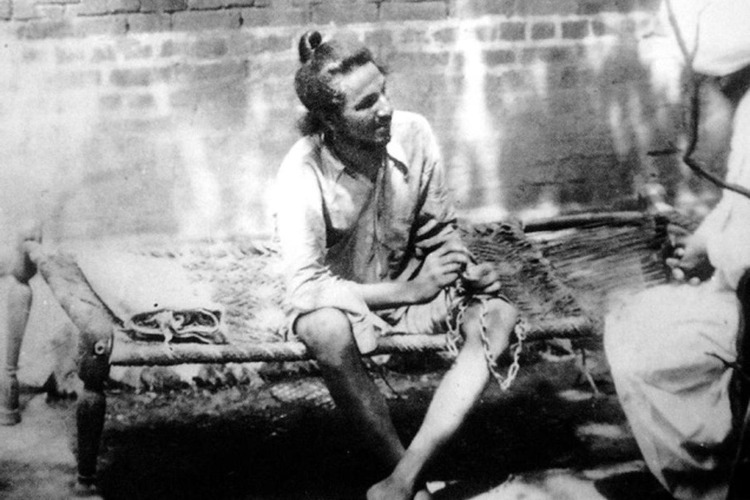
Saquib Salim
“If they (leaders of Congress) do not strive for the release of violent revolutionaries (Bhagat Singh, Sukhdev, and Rajguru), the leaders and ordinary political prisoners, on release from jail, would be received with black flags like Simon Commission, and instead of cries of ‘Simon Go Back’, they will be greeted with ‘Gandhi Go Back’ and ‘Go Back Jawahar Lal.” Ahmed Din, a revolutionary leader from Amritsar, told this to a big audience in February 1931.
By the end of the 1920s, the activities of Indian Revolutionaries had become a headache for the mighty British Empire. The Meerut Conspiracy Case had been an eye opener for them. Instead of fizzling out in face of brutal repression where hundreds were either hanged or sent to Andamans during the last two decades, the revolutionary movement had broadened itself among peasants and the working class. The Empire wanted to teach Indians a lesson and the revolutionaries were asking, “Dekhna hai zor kitna baazu-e-qatil mein hai” (Let us see how strong the arms of murderer tyrants).
In 1929, Bhagat Singh along with B.K Dutt asked this question by courting arrest after throwing non-fatal bombs in the Central Legislative Assembly, Delhi. The might of the Empire had been challenged. The Empire was already trying to grapple with the legalities to convict revolutionaries in the Meerut Conspiracy Case. When Indians would not cooperate with the police how would you produce evidence? The Empire had learned the lesson and formed a special tribunal to subvert the legal procedure. Bhagat Singh, Rajguru, and Sukhdev were sentenced to ‘martyrdom’ at the gallows after a mockery of judicial procedures.
The public outcry was natural. Common Indians wrote letters, started signature campaigns, and held public meetings against the execution order of these national heroes. Though the ‘non-violent’ leadership of Congress remained silent, the masses rose in revolt. Bhagat Singh Appeal Committees in several districts were formed to oppose the orders of hanging the revolutionaries. 17 February was celebrated as Bhagat Singh Day and large public meetings were addressed by revolutionary leaders like Ahmed Din, Gurdit Singh, Baba Sohan Singh, Sardul Singh, and Satyapal. The Intelligence Report submitted to the Governor of Punjab on 21 February noted, “the object of these committees is to stir the people to such a pitch of excitement that on the day of execution they will take part in offensive and possibly violent demonstrations.”
Students and teachers boycotted colleges to protest. According to a police report at least 15,000 people in Lahore gathered to protest this court order and hailed the revolutionaries as ‘martyrs’ and ‘immortal young men’.
While all this was happening the ‘non-violent’ Congress leadership kept itself away from these protests. The public resentment against them was on display in speeches made by leaders like Ahmed Din. He had threatened that if the Congress leadership would not take up the issue people would be forced to boycott the Congress leadership. The dissociation was so public that when, after the hanging of Bhagat Singh on 23 March, ‘the All India Bhagat Singh, Rajguru and Sukhdev Trial Committee’ approached Mahatma Gandhi to help in establishing an All India Memorial for these ‘martyrs’ he outrightly rejected the idea. Gandhi wrote back, “Your reasoning does not appeal to me at all. A memorial erected in honour of anybody undoubtedly means that the memorialists would copy the deeds of those in whose memory they erect the memorial. It is also an invitation to posterity to copy such deeds. I am therefore unable to identify myself in any way with the memorial.”
The threat of a violent opposition was looming large over the Empire. In a report sent to the Governor, the intelligence did not rule out the possibility that under a mounting public pressure the Congress might have to take up the issue at the negotiation table. The terrified tyrant did what a despot would do. The mighty British Empire hanged the national heroes a day before the scheduled date of execution exposing the hypocrisy of its judiciary and legal procedures.
